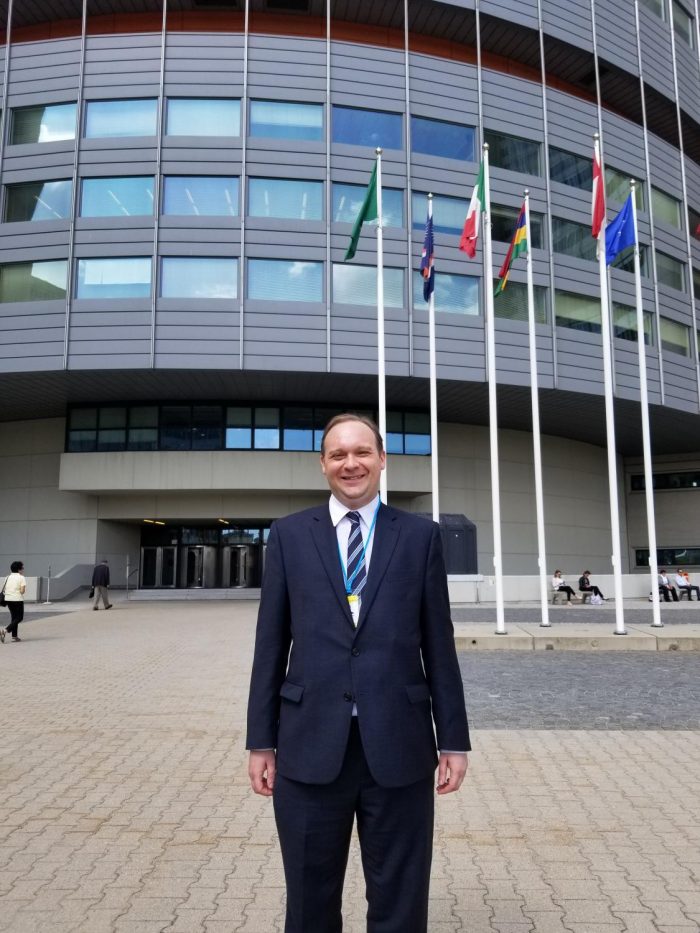World Council of Credit Unions (World Council) engaged the Financial Action Task Force (FATF) during the FATF’s Private Sector Consultative Forum held April 23-24, 2018 at the United Nations Office on Drugs and Crime in Vienna to urge increased engagement with the private sector during evaluations of national anti-money laundering/countering the financing of terrorism (AML/CFT) regulations. The FATF, which is based in Paris, France, is the global standard setting body for AML/CFT rules and conducts periodic “mutual evaluations” of national-level AML/CFT supervision. The FATF’s mutual evaluation of the United States of America’s Bank Secrecy Act regulations and guidance is expected to begin this summer.
“Credit unions and other financial cooperatives often tell us that their examiners interpret the ‘risk-based approach’ to AML/CFT compliance with a bias towards categorizing many business activities as ‘high-risk’ when they may objectively be low- or medium-risk. We think that increased engagement with the private sector during the mutual evaluation process will help ensure that examiners interpret AML/CFT rules proportionally to the risks posed by particular lines of business,” said Michael Edwards, World Council vice president and general counsel.
World Council also urged the FATF to continue its efforts to reduce “de-risking” in the financial system, which occurs when correspondent banks cease to do business with classes of institutions because of perceived AML/CFT compliance, enforcement, and reputational risks. Although the “de-risking” problem has become less prevalent for credit unions and other financial cooperatives in recent years due to clearer FATF guidance on correspondent banking AML/CFT requirements and information sharing, credit unions in some jurisdictions continue to face obstacles when trying to establish correspondent bank accounts or clear checks, especially in parts of the Caribbean.

Michael Edwards, World Council vice president and general counsel at the United Nation’s Vienna International Centre.